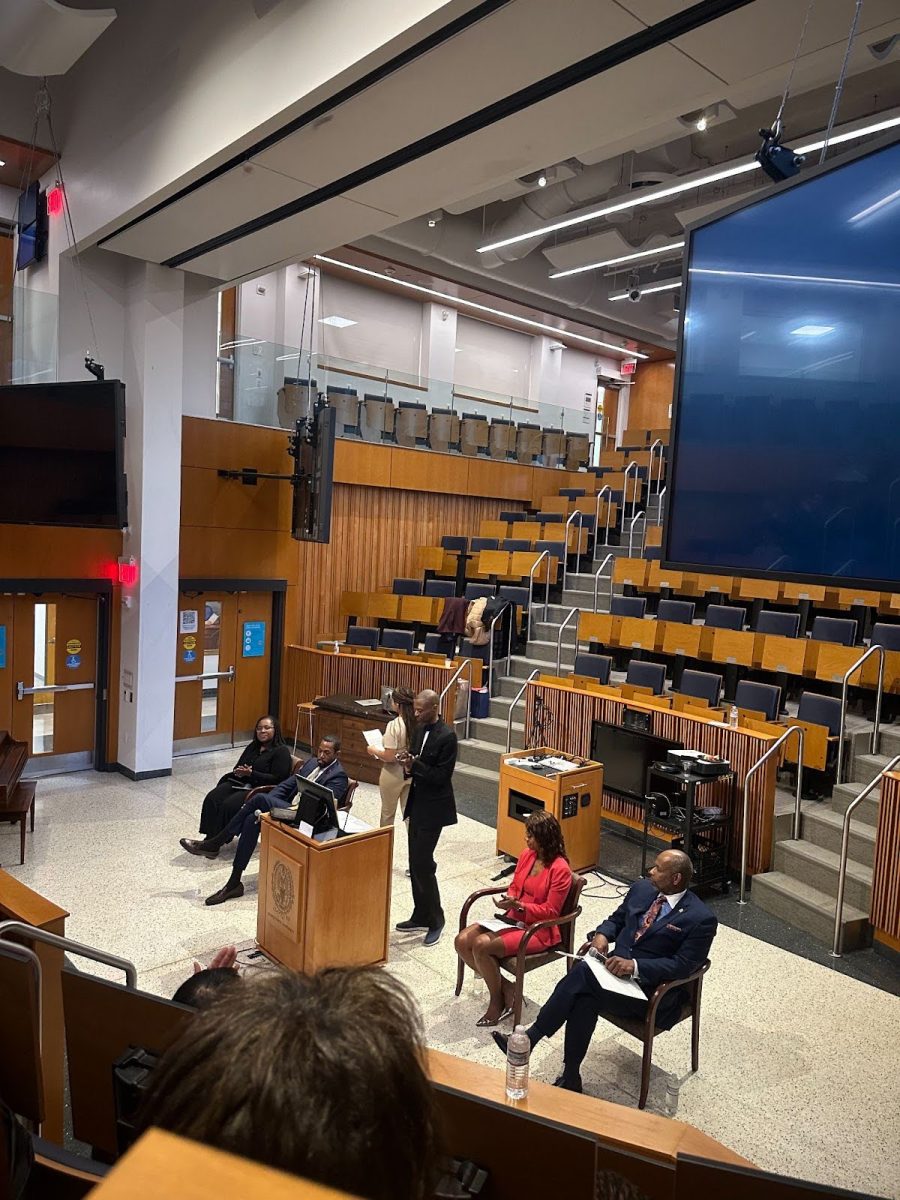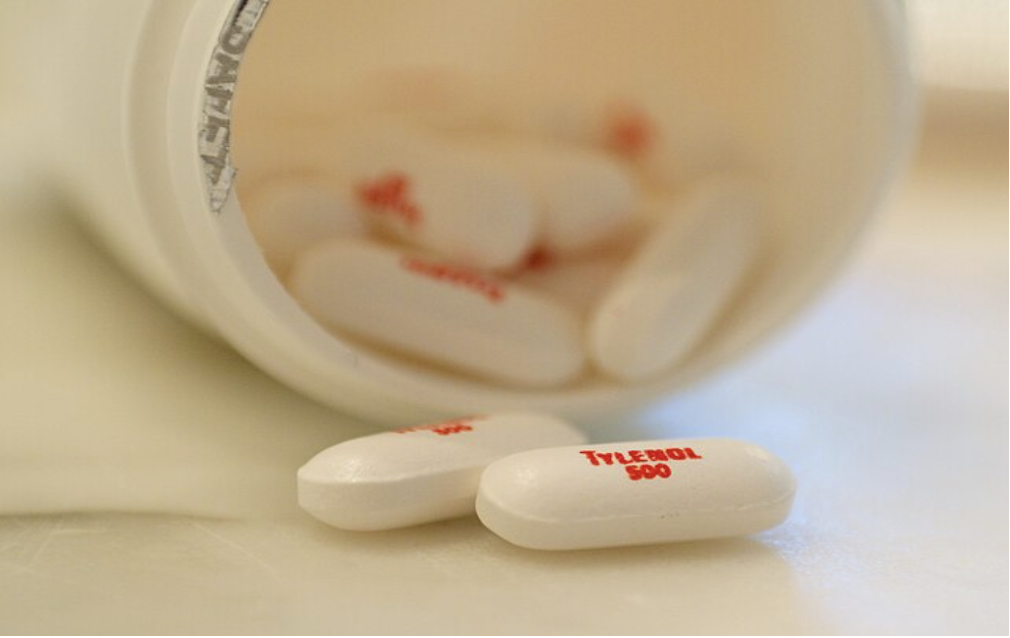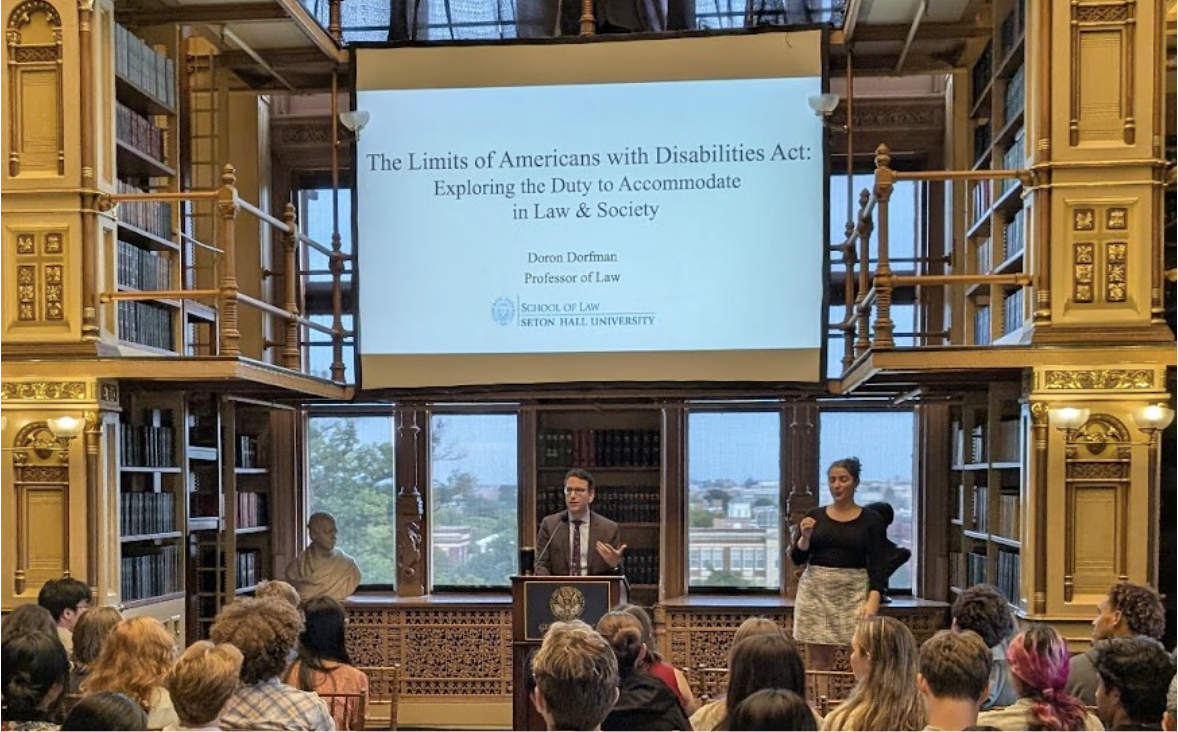The Black Student Alliance partnered with the Black House, the Black Leadership Forum and the National Association for the Advancement of Colored People to host a conversation with African American leaders on health equity innovation Feb. 6.
The conversation centered around the course “Health Equity Think Tank,” introduced by Brian Floyd, assistant dean in the School of Health, and Dr. Edilma Yearwood a decade ago to allow students to explore the causes of health disparities in Washington, D.C., and create potential solutions. Four leaders from various backgrounds explored these causes — such as education, housing and food insecurity — at the event.
LaShanda Adams works as the legal director of Children’s Law Center in D.C., promoting medical legal partnerships with the goal of supporting family health and education. The cases at the Law Center focus on housing conditions, legal violations and access to special education services for children in Wards 5, 7 and 8.
Adams said children in Ward 7 or 8 of D.C. are more likely than a child from another area to go to the emergency room with complications from asthma due to poor housing conditions that can trigger health issues.
“This is a direct result of poverty and housing conditions and structural and systemic racism,” Adams said at the event. “We represent parents to force landlords to make necessary repairs, remediate mold, exterminate rodents and the like.”
Adams said the Law Center’s collaborations with Children’s National Hospital and the National Housing Trust, which creates and preserves affordable houses to reduce economic disparities, aim to help communities affected by these structures of harm.
“We used data from Children’s National, their asthma registry, from the D.C. government, to create a map that shows buildings that have a high rate of children visiting the ER because of asthma and housing conditions violations,” Adams said. “We’re also working with the National Housing Trust, and we recently secured a grant from the Environmental Protection Agency for $20 million to work with six landlords we identified to make necessary affairs to deal with air quality issues.”
Karen Dale, market president of Amerihealth Caritas, a Medicaid-managed organization, spoke about her work to address key factors that cause health inequities including transportation, food insecurity and health literacy.
Dale talked about one of her projects intended to help respond to high maternal rates of diabetes and hypertension through delivering medically tailored meals to patients’ houses, saying checking in with mothers can help stop the occurrence of these diseases.
“We have a disciple to always go back and have a conversation with whoever has been engaged in the intervention,” Dale said at the event. “We called a number of the moms, and they said they didn’t know how the food tasted. They said our whole household is food insecure, so we gave it to our children. One mom said, ‘What kind of mom would I be, just because I’m pregnant, I would have the food and not give it to my children, right?’”
Rahsaan Bernard, the president and CEO of Building Bridges Across the River, a non-profit that works to lessen health disparities in the neighborhoods east of the Anacostia River, said trust is important to ensure programs are actually utilized by people who need them.
“All we’ve been doing is pouring resources into these communities,” Bernard said at the event. “The problem has always been the human element. Health care is a very intimate, personal thing. Trust is built by creating experience and associations that are consistent over time.”
Wayne Turnage, the deputy mayor of the D.C Health and Human Services, spoke on his work to ensure the complex system of health agencies for all people in D.C. is effectively integrated so all people have adequate access to health services.
Turnage said many faults lie in the gap between the healthcare system and constituents.
“There’s no connection to the community provider to create the integrated system of care that is needed to properly treat people who have sickness,” Turnage said at the event.
Floyd and Yearwood plan to continue “Health Equity Think Tank” in Spring 2026 and beyond.
“We firmly believe that in order to make a change and affect health outcomes, we have to have a place to talk about those things,” Yearwood said. “So we will be continuing with that. We’re not giving up on the fight.”




